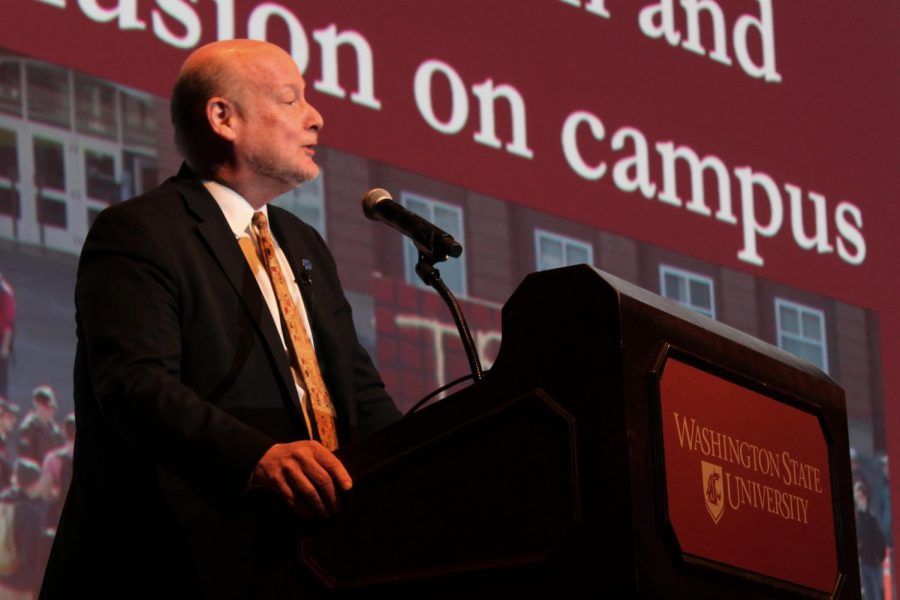UC chancellor makes case for protecting offensive speech
Campus hate speech codes illegal, often overturned, author says
ABBY TUTOR | The Daily Evergreen
Howard Gillman, chancellor of the University of California, Irvine, talks about how important free speech is to continue having freedom of thought.
March 29, 2018
A chancellor from the University of California system, which is known for its student activism, argued for the importance of protecting free speech on college campuses Thursday.
The Foley Institute hosted Howard Gillman, from UC’s Irvine campus, to share his experience with university demonstrations and talk about his new book, “Free Speech on Campus.”
He recalled the treatment of protesters the first time Milo Yiannopoulos, a former senior Breitbart editor and conservative provocateur, spoke at the campus. People walked up to the protesters with pacifiers, calling them liberal snowflakes.
Gillman said one of the reasons this has become such an issue in the current generation is the fact that social media has allowed people to connect more than ever.
“This is the first generation that has been raised on anti-bullying campaigns,” he said.
He referenced social media later in his speech when he discussed the time and place for saying things.
“You can say a lot of things on your Twitter feed that you can’t say in your classroom,” Gillman said.
He discussed the ethics of what campuses can and cannot allow students to say. For example, it is illegal for a university to pass hate speech codes, and all that have tried have been overturned.
WSU student activists staged a sit-in in the French Administration building in August, where their demands for campus reform included the university defining and combating hate speech.
“You need to have more than an opinion to step over the line in harassment,” Gillman said.
Makayla Murphy, a pre-law freshman, said she was particularly impressed with one of Gillman’s points.
“It really stuck with me that nobody believes in one absolute truth,” Murphy said. “I supported the fact that some speech shouldn’t be said, but I think his ideas made it more about how they’re said.”
Tristan Glivar, a freshman studying political science, said he believes all speech should be free, regardless of his opinion on it.
“I think that by allowing anyone to speak,” he said, “people will hear those ideas, whether they agree with them or not, and they will be able to decide for themselves.”
While it may seem destructive to afford prejudiced speech the same rights, Gillman said, allowing everyone to express their views has its benefits.
“If you don’t allow the truly terrible things to be expressed,” Gillman said, “then you don’t know what you have to face.”









